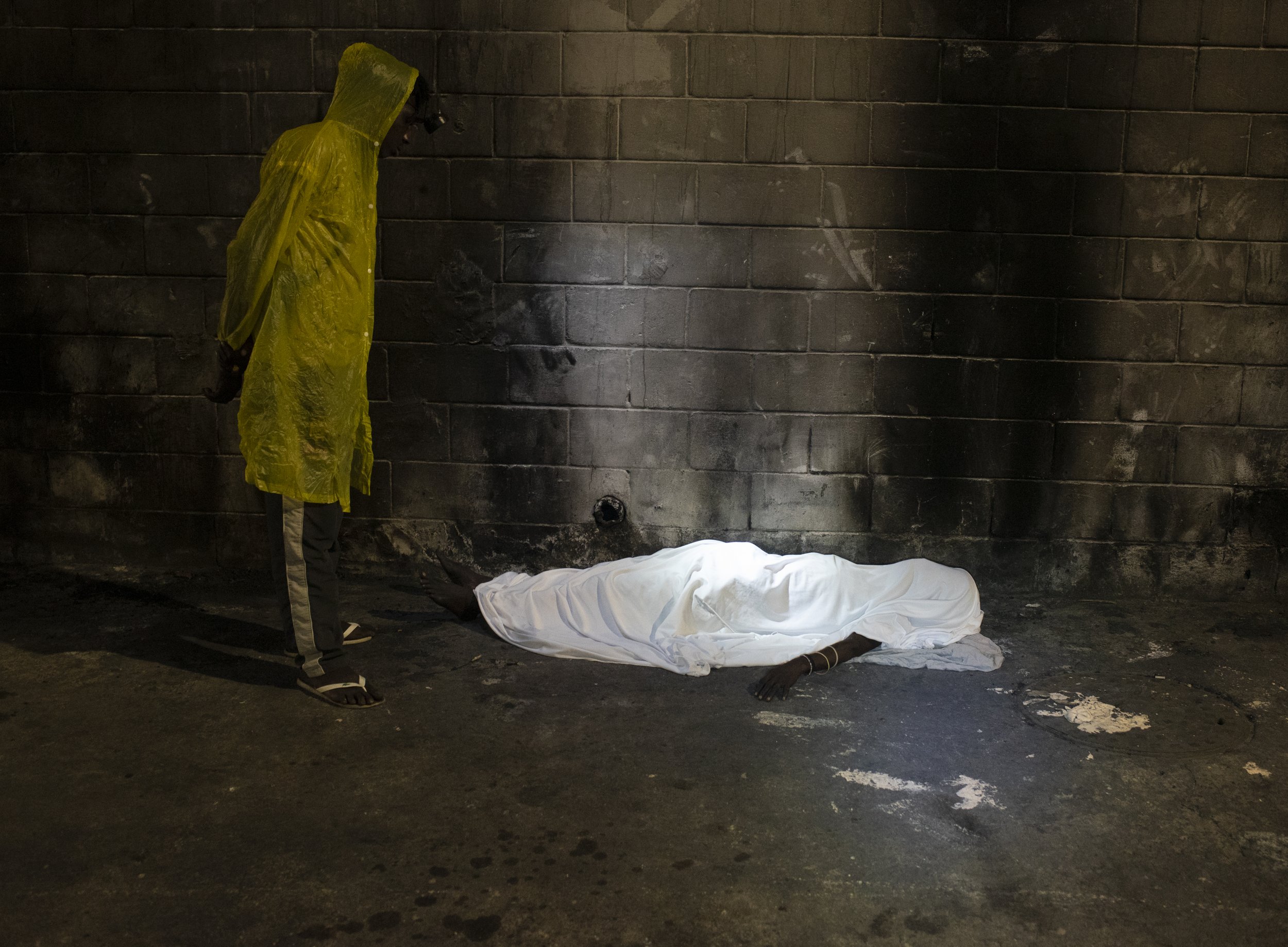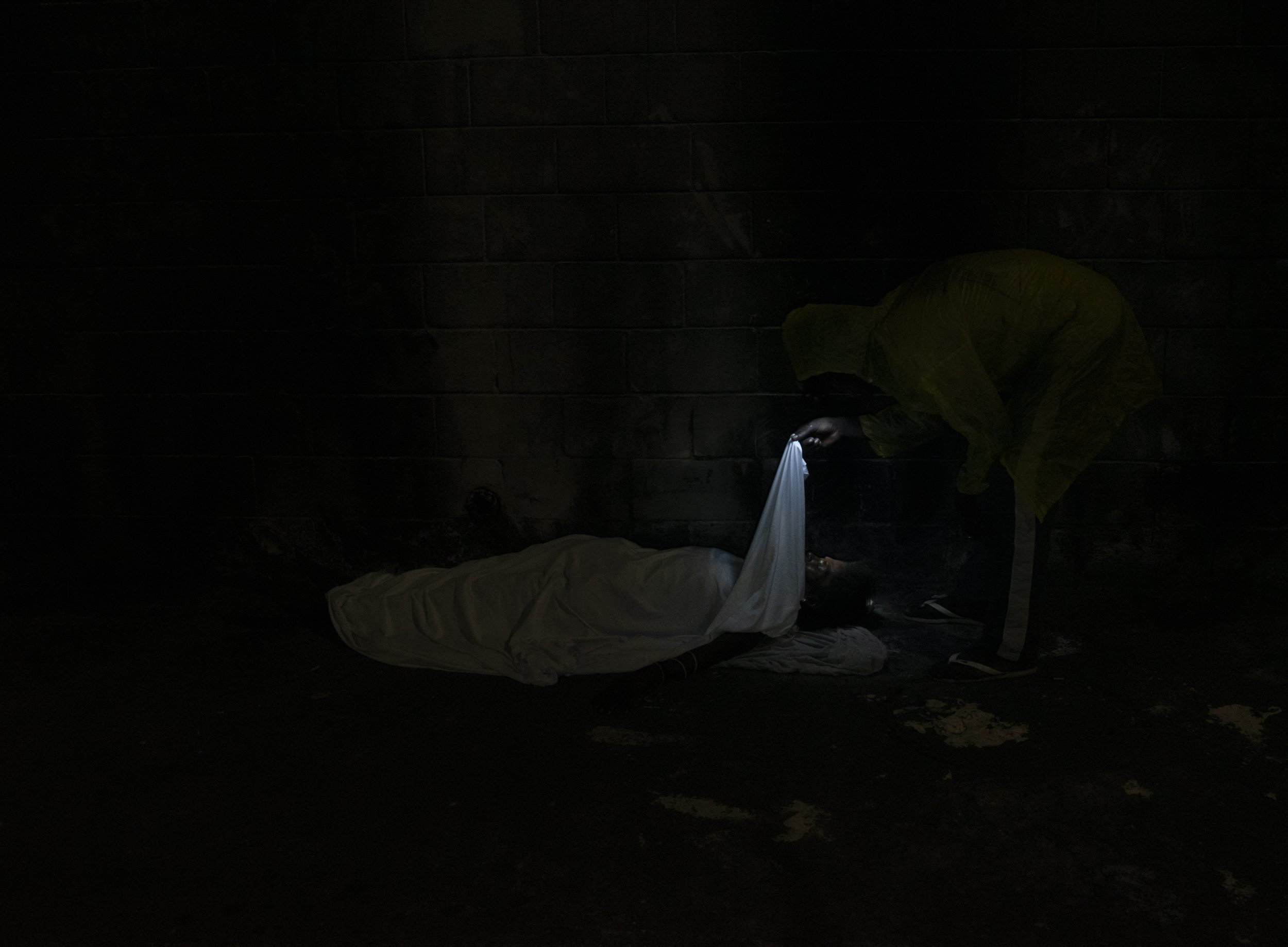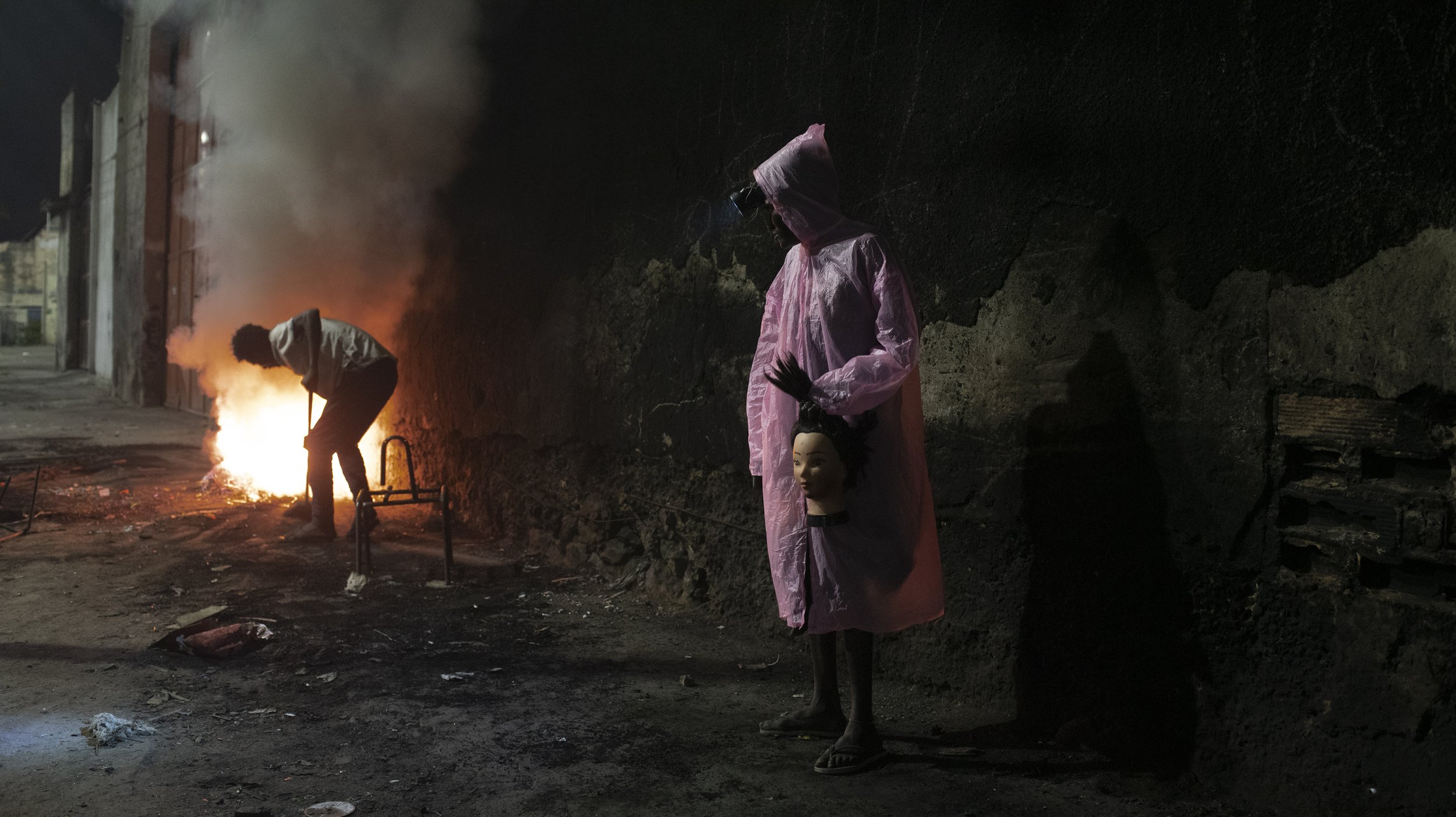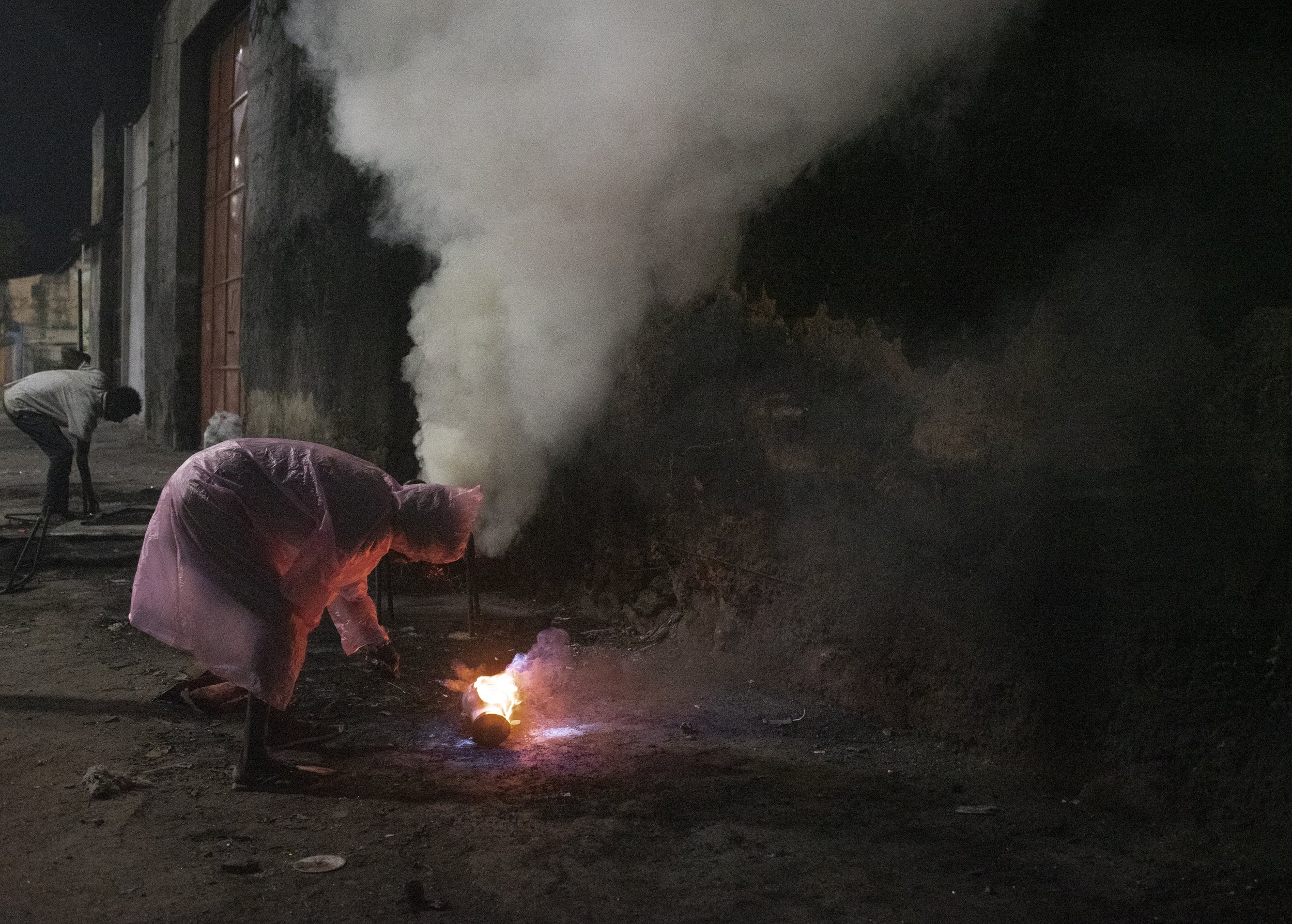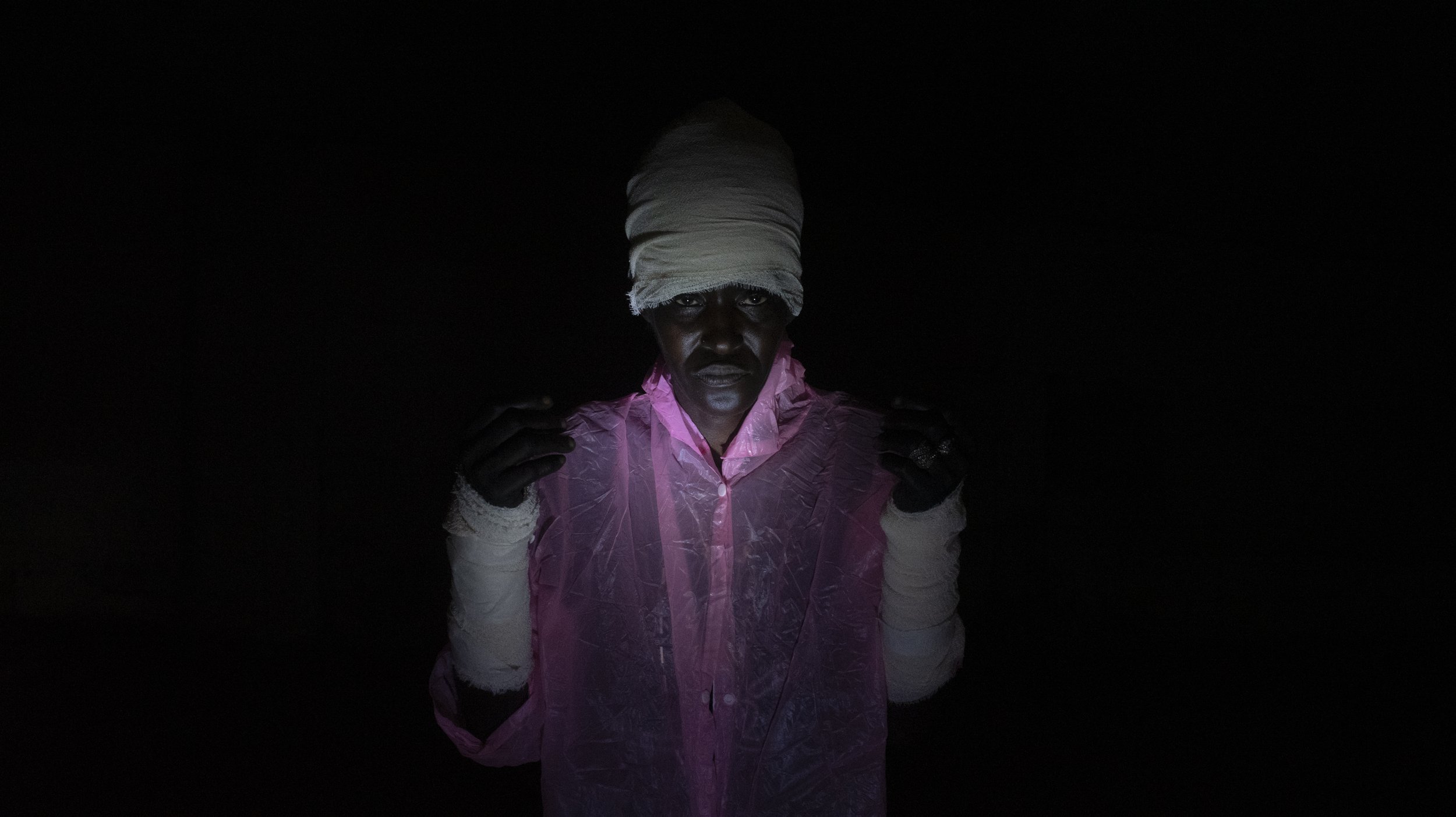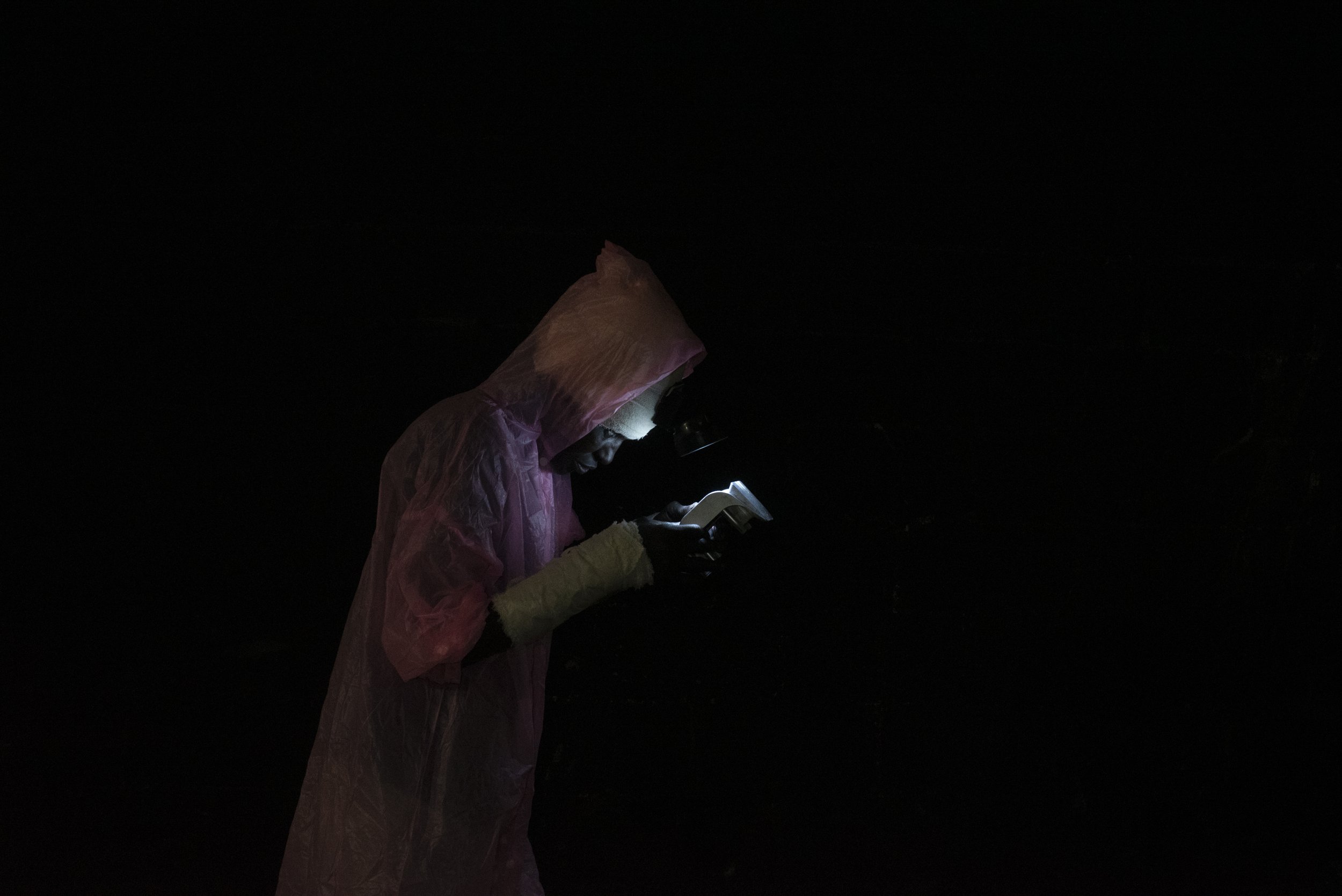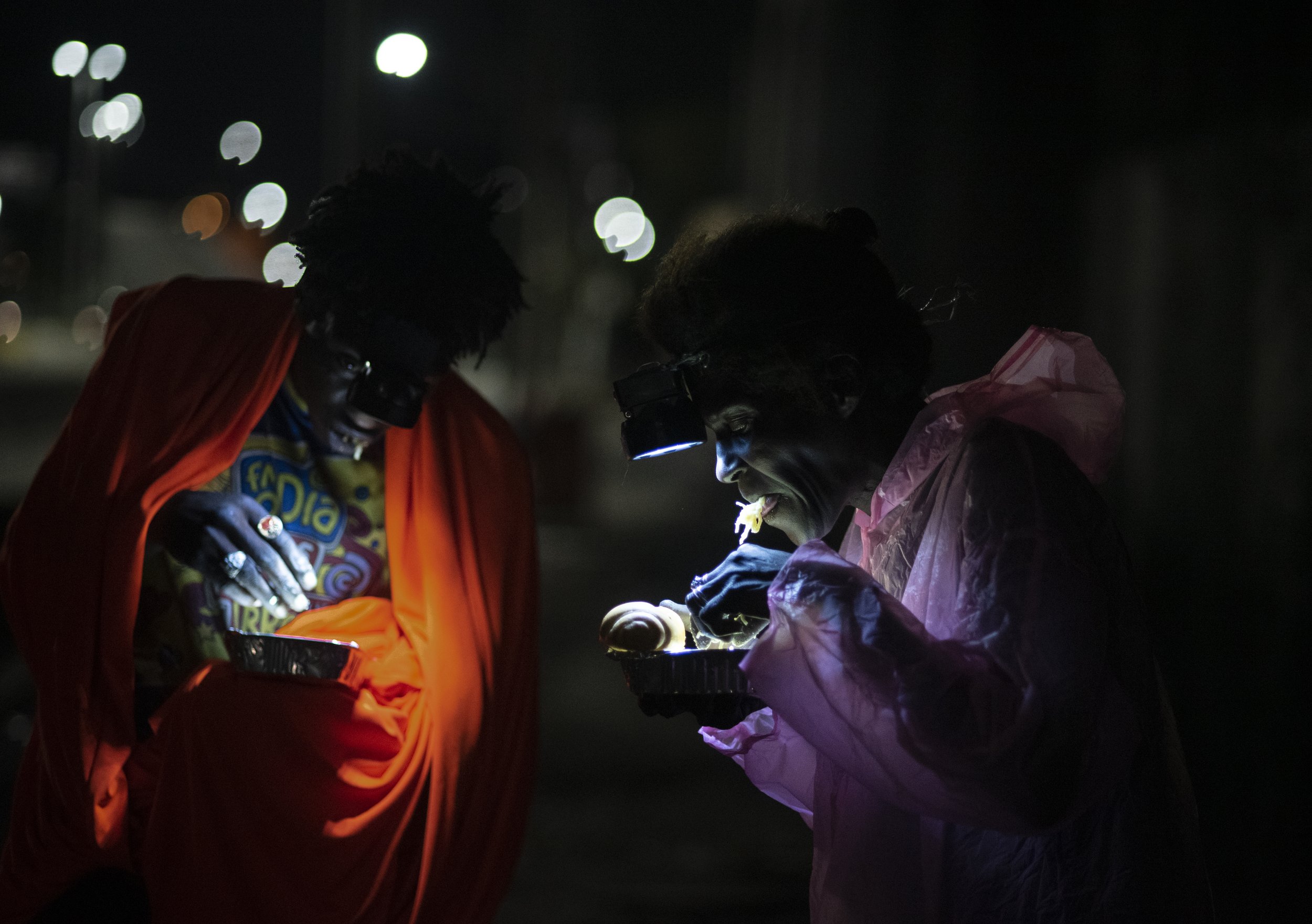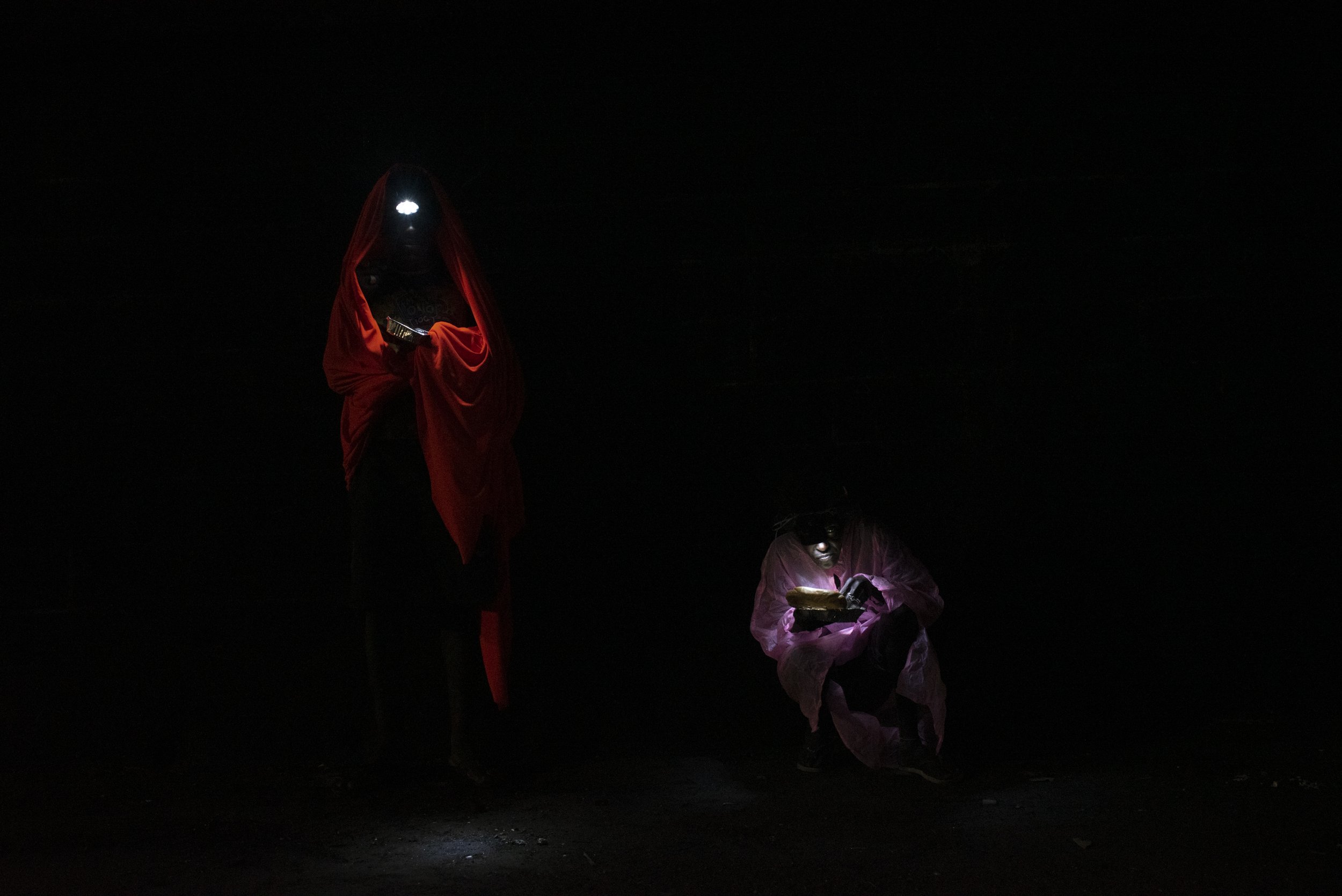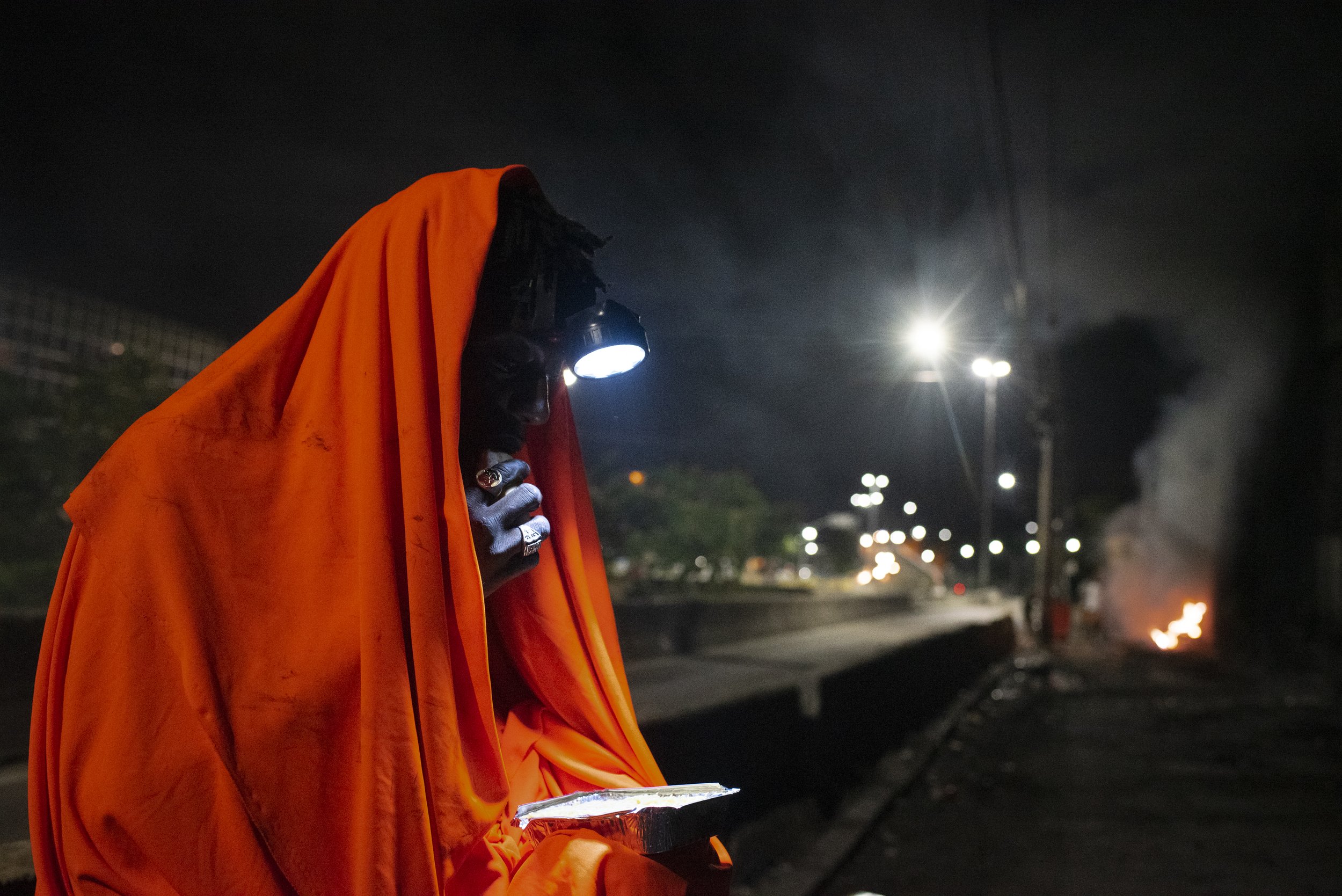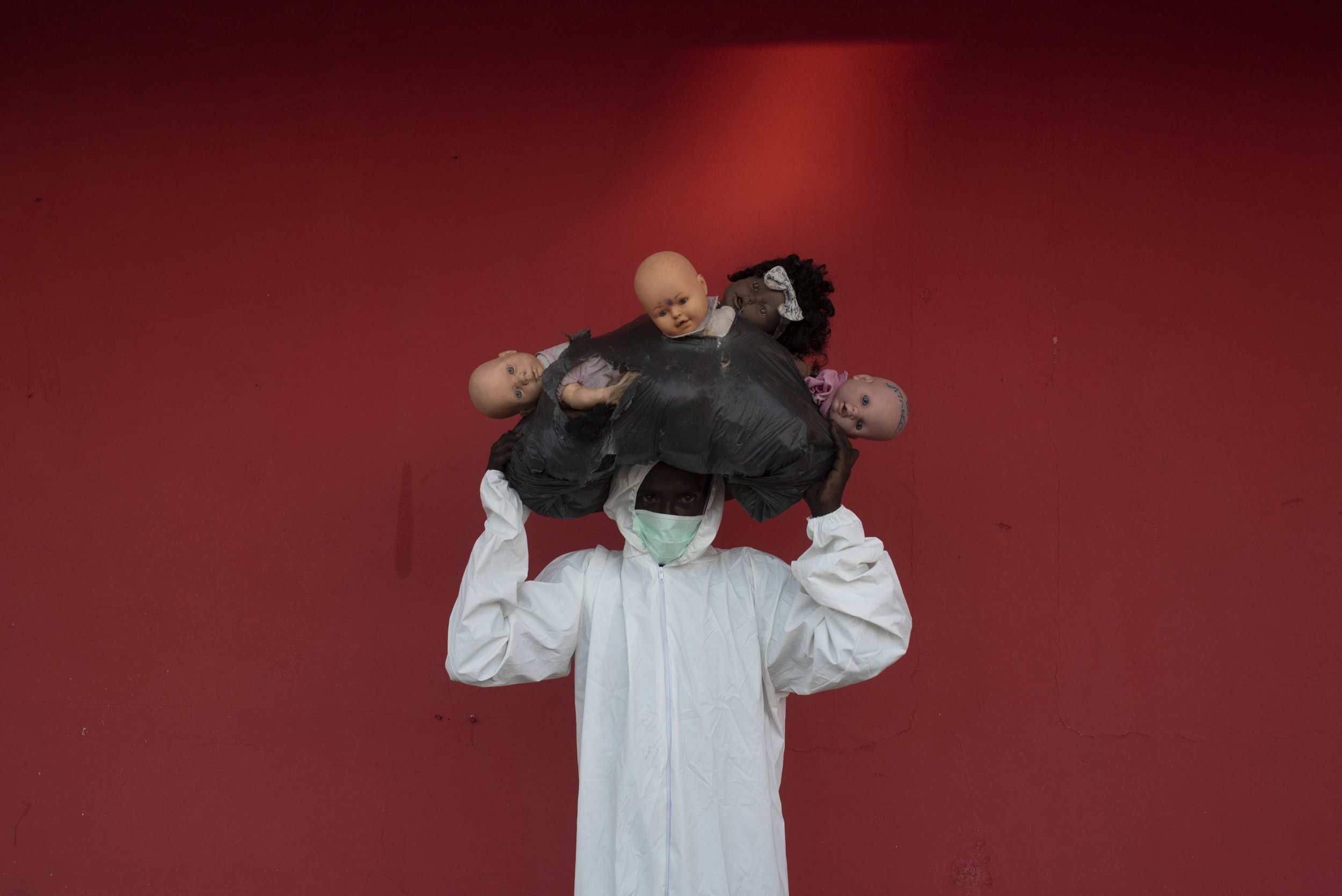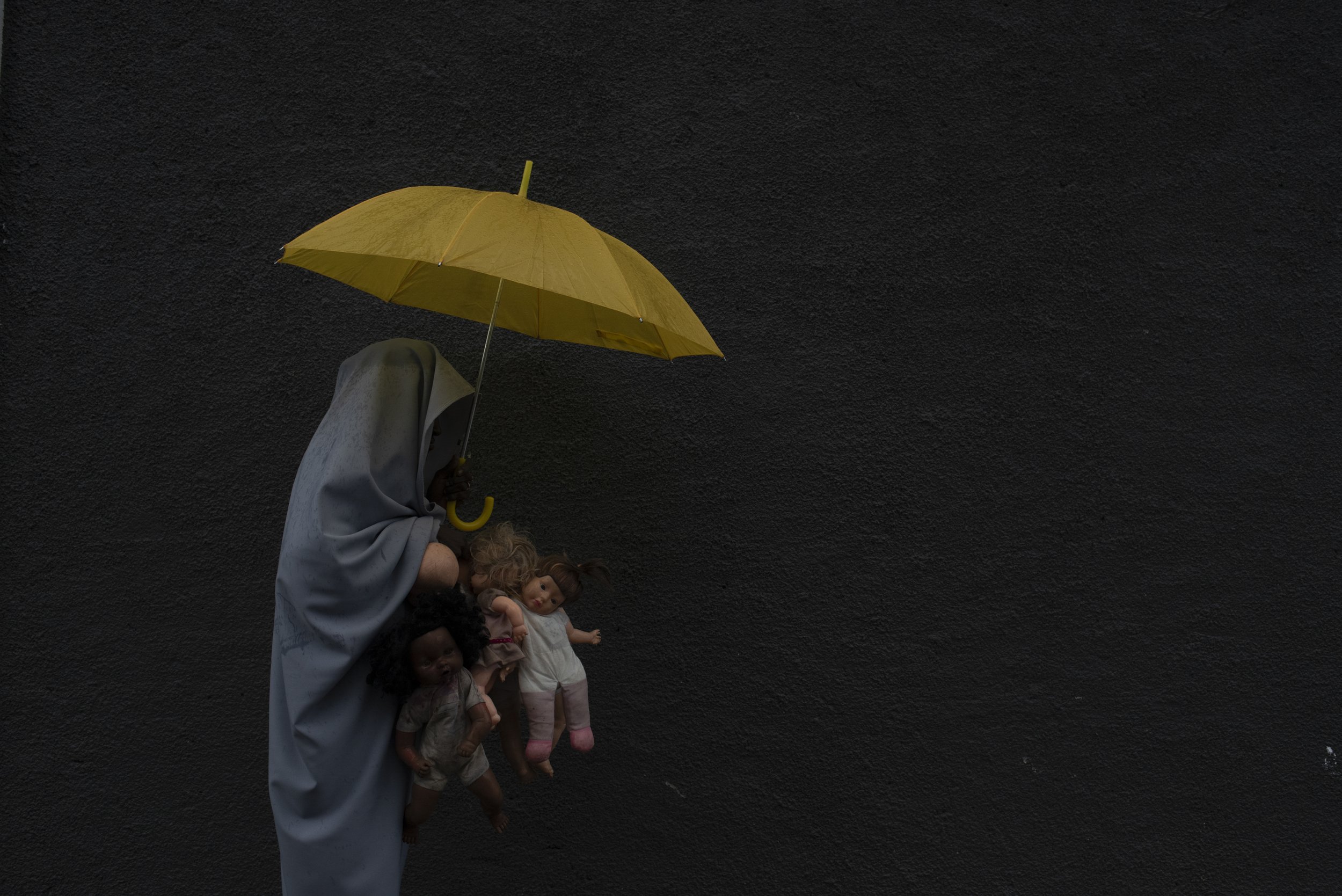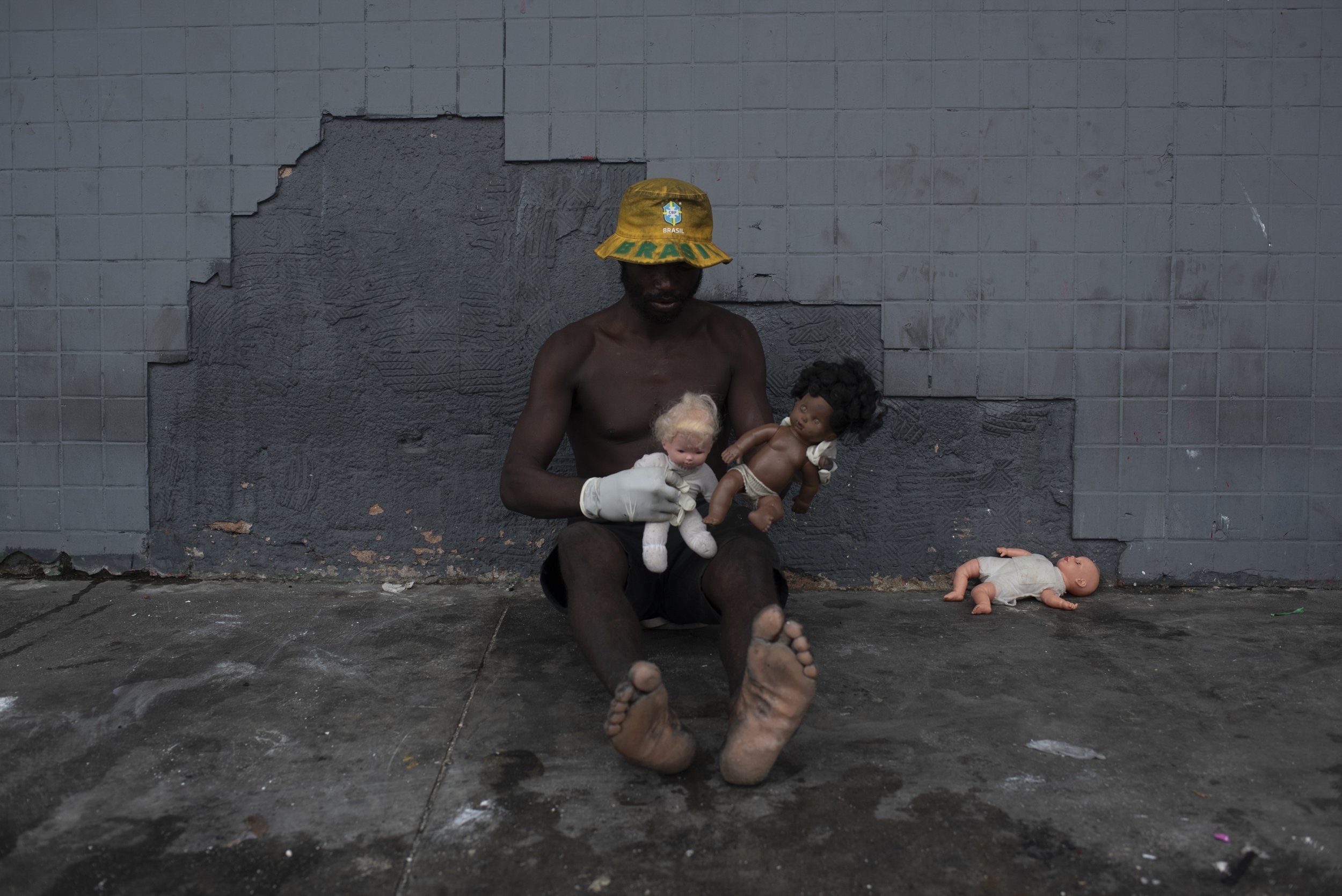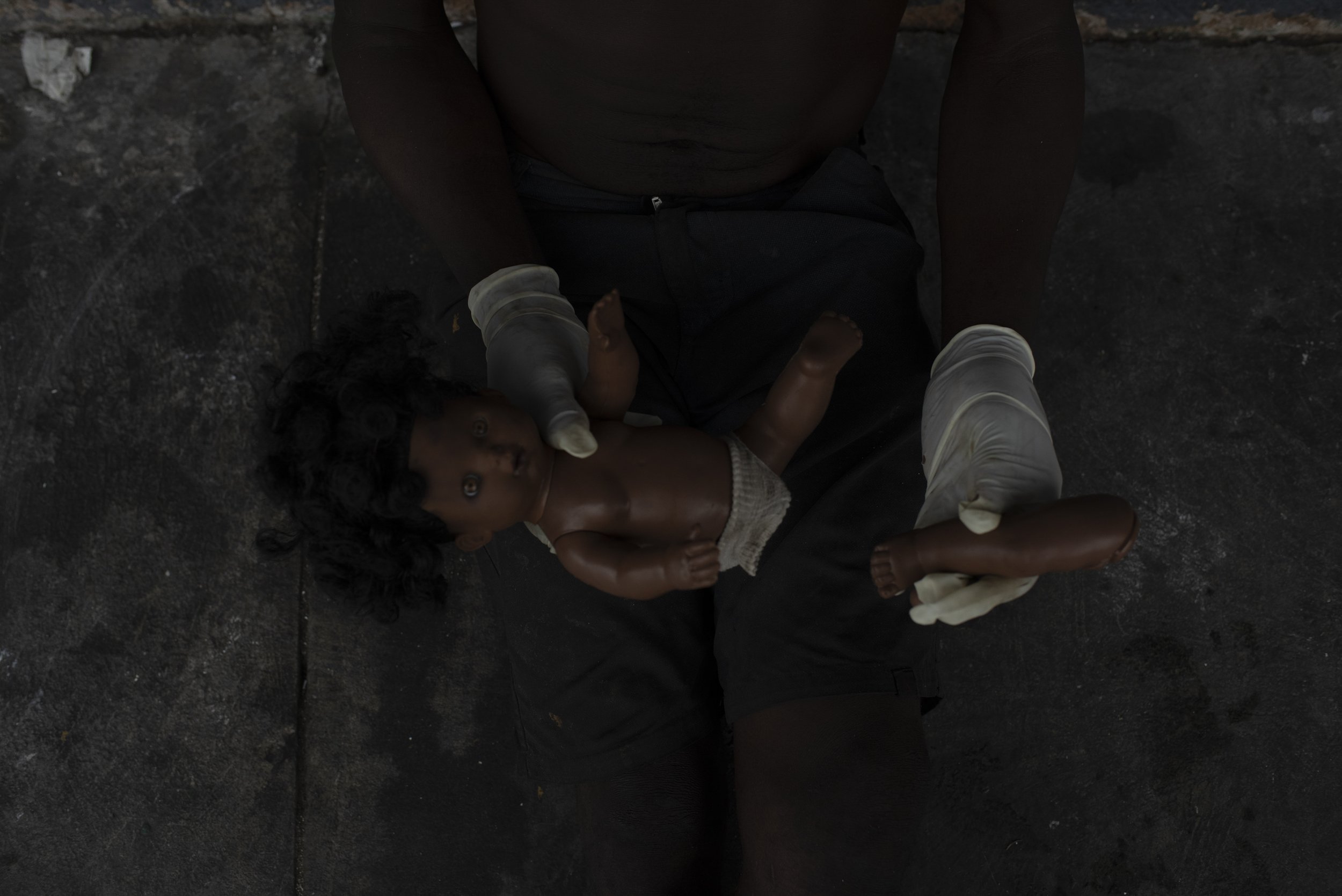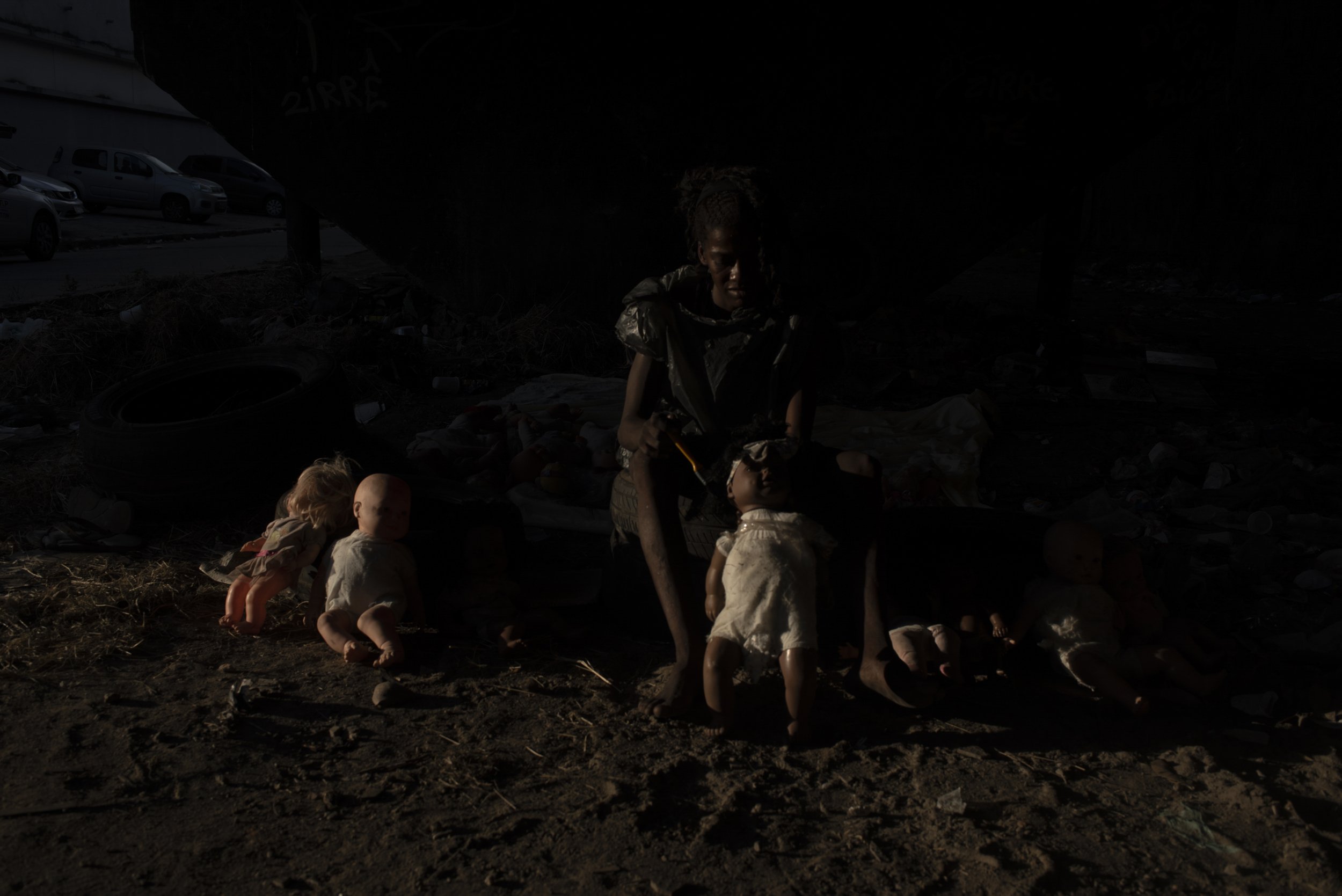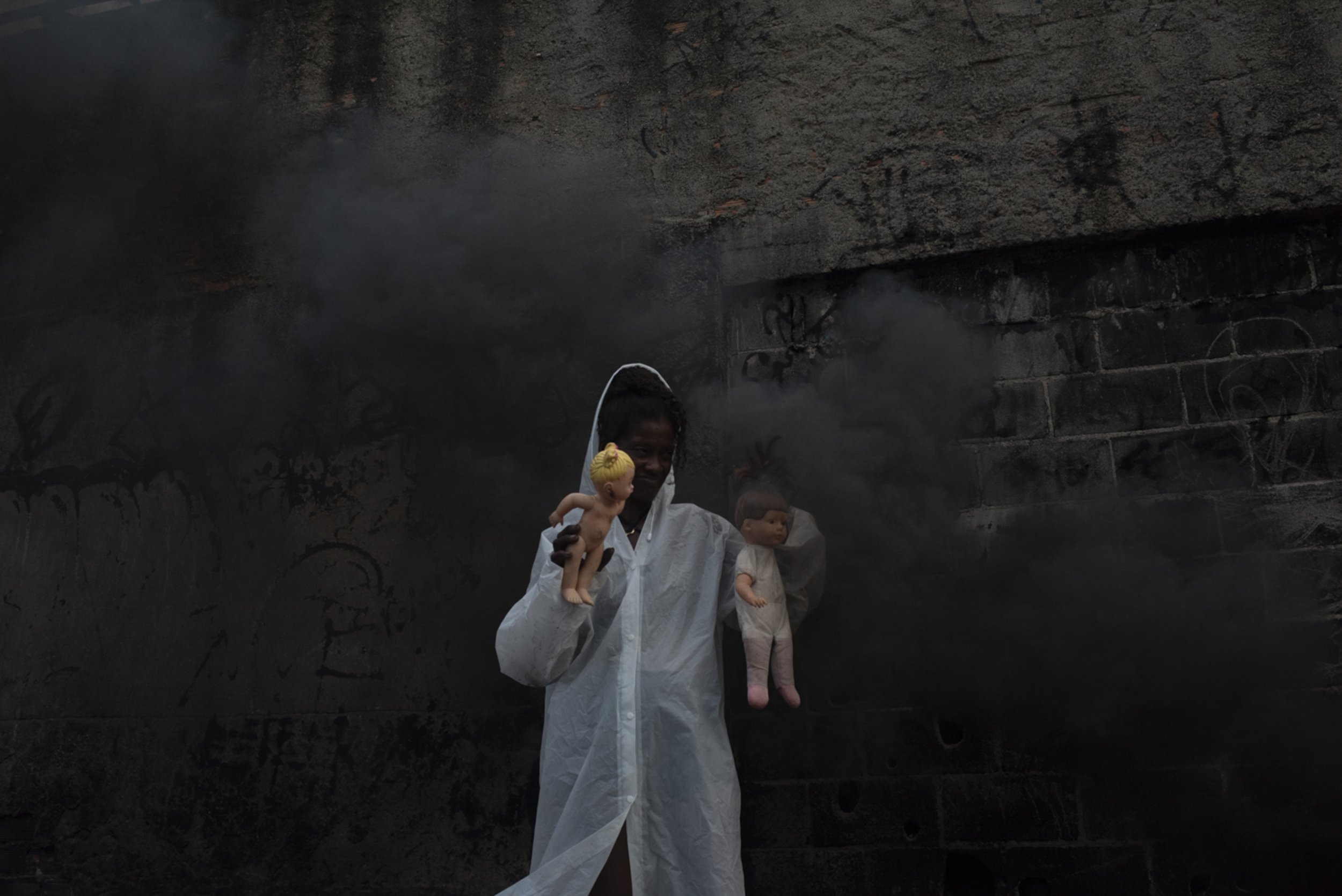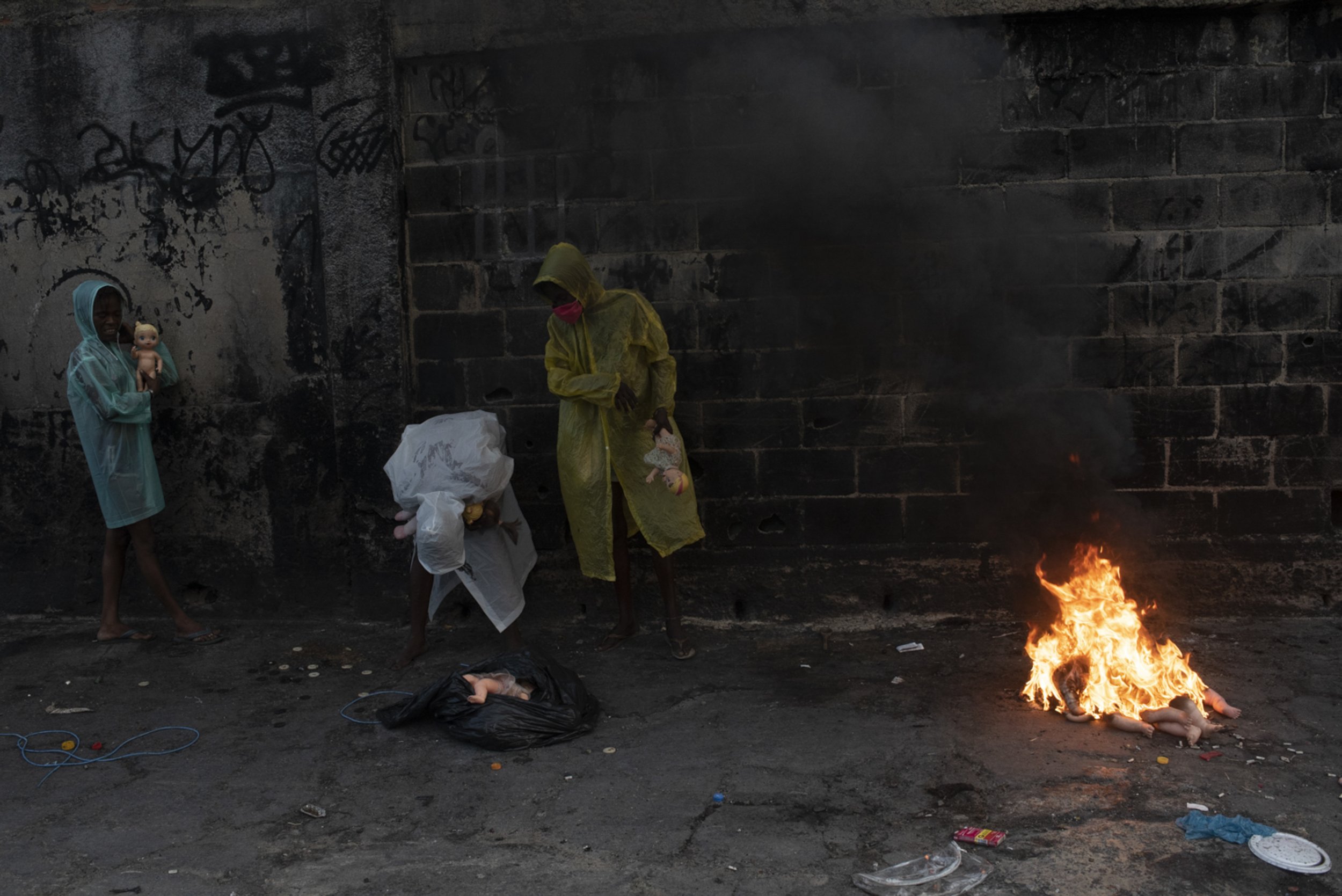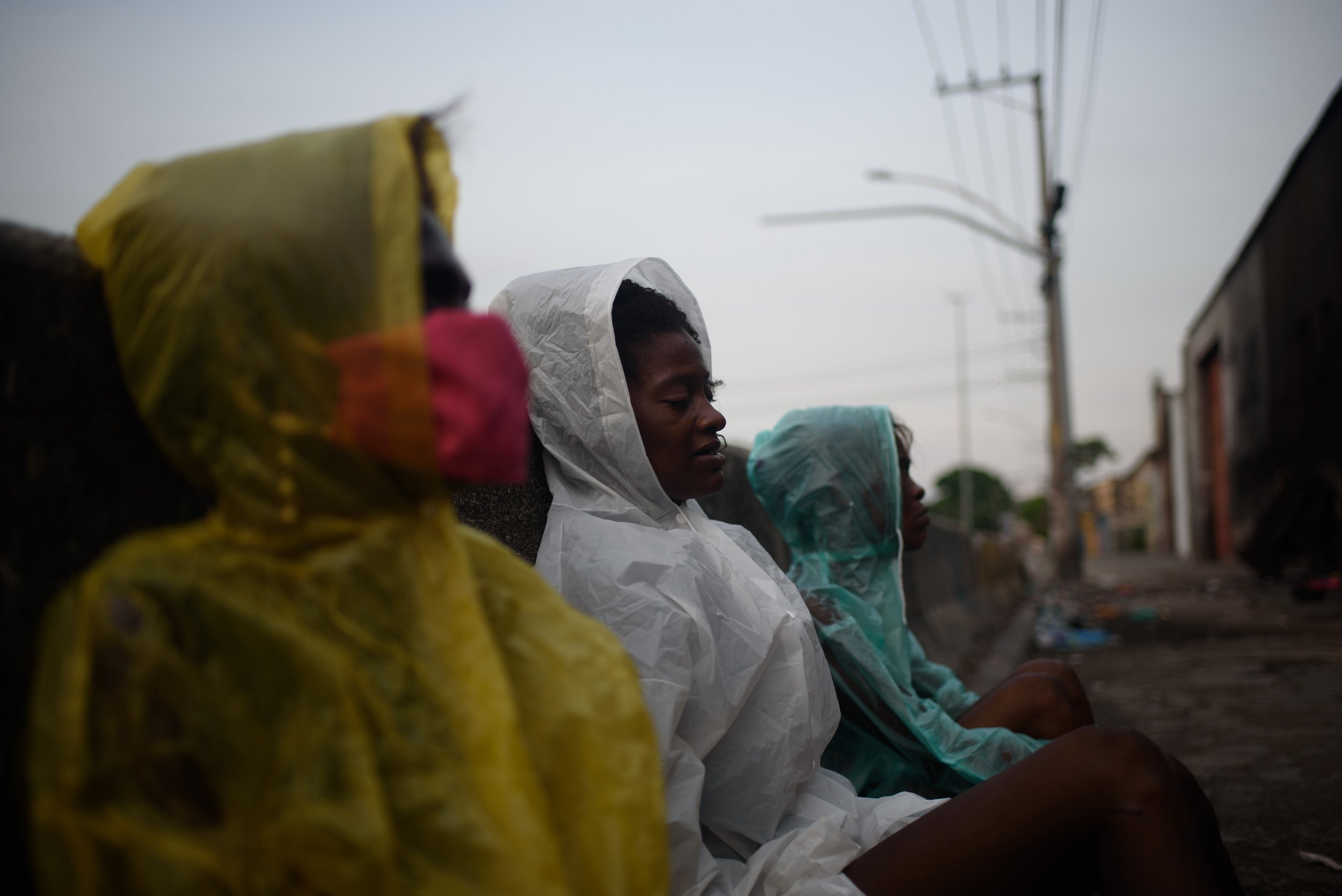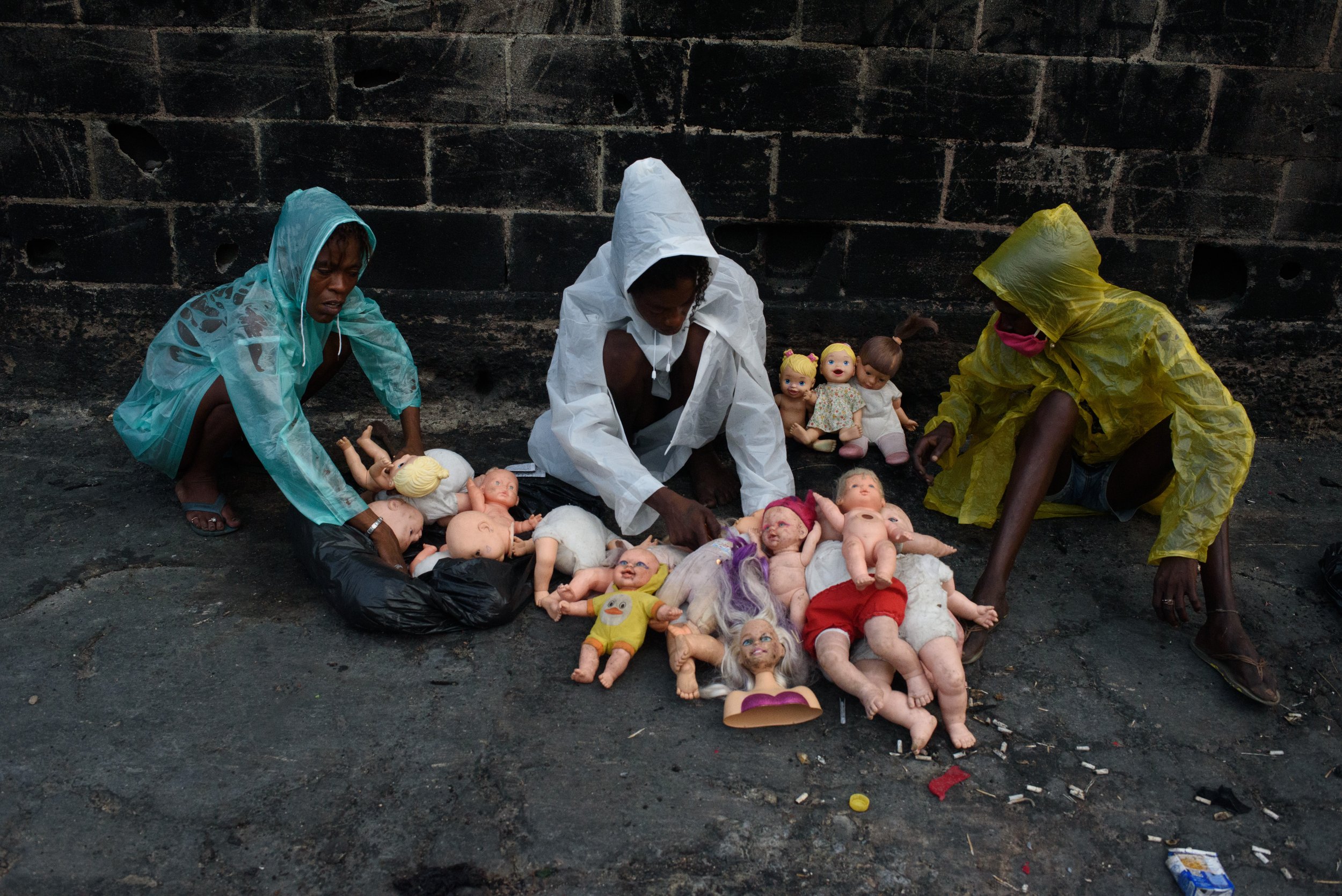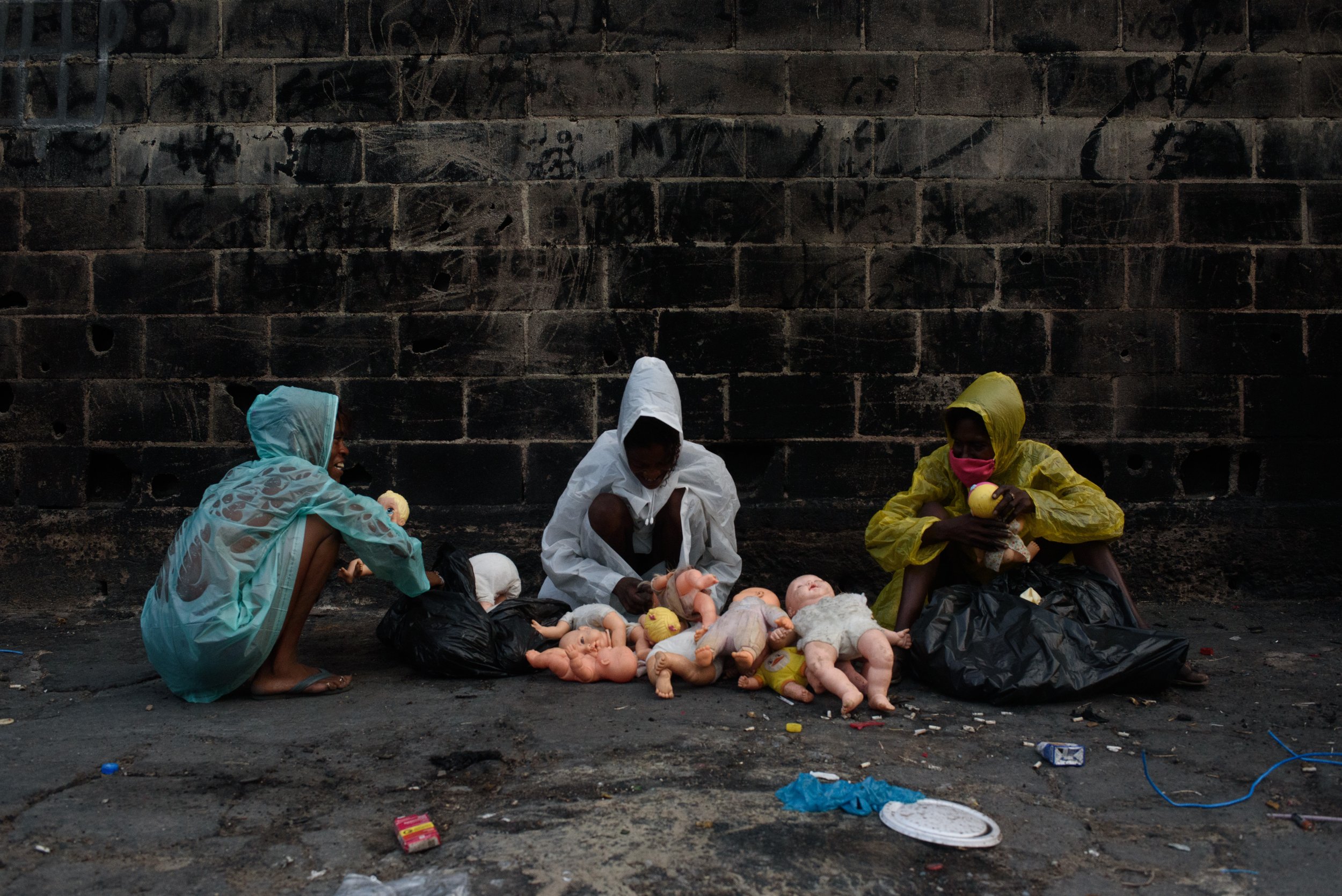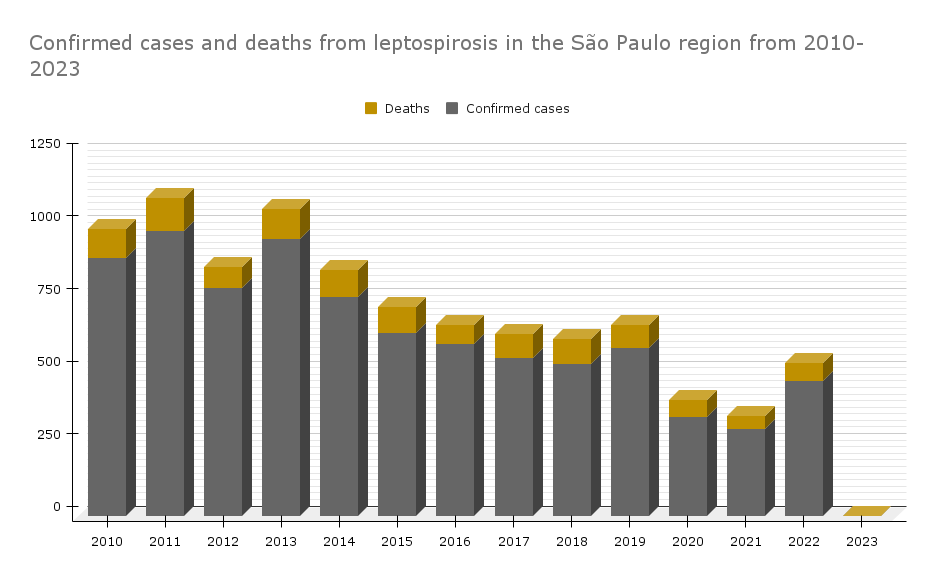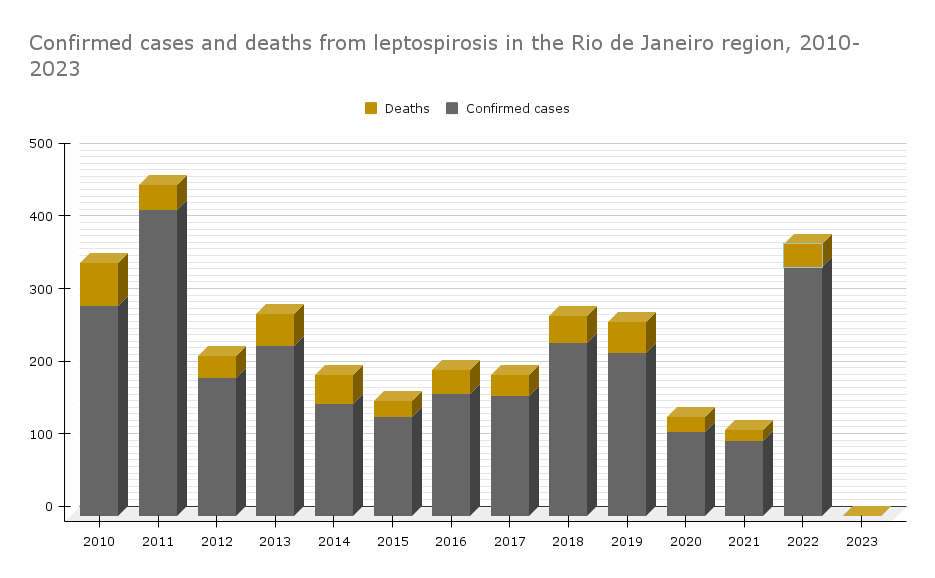Separating organic waste can prevent leptospirosis and save lives
2022 – Fabio Teixeira – RIO DE JANEIRO
It can be said that producing less garbage helps to extend human life on the planet, because, among other things, it preserves natural resources on which we depend to survive. Organic waste, in particular, is responsible for the production of methane, considerably increasing humanity's greenhouse gas emissions. But it is possible that the separation of organic waste can save lives in a more immediate way: by preventing cases of leptospirosis.
It is not news that food waste in the garbage attracts animals such as rats, and that the urine of these animals can cause leptospirosis in humans. According to the photojournalist Fabio Teixeira, author of the photographic series “Surviving Between Shadow and Light”, anonymous workers, who work in the outskirts of communities in Rio de Janeiro, are victims of racism, police violence, and suffer from diseases caused by the trash. “These unemployed people recycle garbage to find copper, iron, aluminum, and toys to repair and donate. According to information from the recyclers, two deaths were caused by contamination with leptospirosis in November and December of 2022.”
This observation by Teixeira is supported by public health research, although the numbers are likely to be underreported. The community of workers in the recycling and garbage collection industry is described as being at constant risk in the 2017 article called 'Perception of Quality of Life of Collectors of Recyclable Materials', from the nursing journal of the Federal University of Pernambuco. The authors explain that “because this type of work requires permanent contact with agents that are harmful to health”, the “activity that handles garbage” is “unhealthy to the highest degree”.
Such statements may sound obvious, but the issue of waste has the potential to affect the entire urban population, not just professionals who handle waste. The Radioagência Nacional, of the Brazilian public communications company, released an alert in March of this year about the increase in “cases and deaths” caused by leptospirosis. Heavy rains and floods exacerbate the problem, and expose a large contingent of the population, leading to 24 cases and 3 deaths recorded by the Rio de Janeiro Health Department in the first two months of 2023.
Proposals to mitigate this danger so far have been: preventing children from playing in places with “accumulated water” or taking out the garbage at most one hour before the garbage truck comes by. But these solutions do not protect the population as a whole, since garbage is still taken to places where people come in contact with it and expose themselves to risks. Moreover, the recurrent potential for floods in urban areas makes it impossible to avoid accumulated water. Conscious consumption and disposal of waste is the most effective tool in the hands of individuals and requires a simple reconfiguration of home dynamics.
2022 – Fabio Teixeira – RIO DE JANEIRO
"Don't Throw Your Conscience in the Trash"
What constitutes conscious consumption are the practices that begin with the purchase of products. Better than recycling is to produce less garbage. For this, it is pertinent to give preference to products without packaging, such as vegetables and fruits. If there is packaging, opt for compostable packaging, such as paper, or reusable packaging, such as glass jars. When disposing of plastic, tetra pak and fabric, ensure that they are clean, with no food leftovers or smells. It is important that this garbage is free of residues or odors of organic matter because they serve as food for and attract rodents.
Separating all food scraps from the garbage prevents the emission of methane into the atmosphere and prevents rats from being attracted by this residue. The question is what to do with this leftover food. Composting is the best way to turn these organic wastes into composted land without producing methane or attracting rodents. But not everyone is able to compost at home. Community gardens such as A Amiga da Planta, in the oceanic region of Niterói, receive and collect organic matter from neighboring residents to use in composting and provide guidance on how to separate these materials – e.g., avoid adding meat, and separate citrus peels in their own containers. The reconfiguration of the culture of consumption and waste disposal at home requires little time and space, but requires interest and awareness.
Consider that someone will handle the garbage and the welfare of those people is of immense importance, as well as consider that this garbage exists for decades or centuries after we throw it away. It is beneficial for all of us that this waste can be separated, reused or recycled in a sustainable and healthy way, without polluting the land or oceans, and without causing deaths.
The work of collecting and separating garbage is essential for the sustainability of consumption practices, for environmental protection, and for the preservation of natural resources such as clean water and fertile land.
09/03/2023 – Fabio Teixeira – Manguinhos Favela
Dealing with Public Policy Failure
Which actions and programs should be developed by the State to guarantee the well-being of the population? Leptospirosis is a disease caused by the failure of basic sanitation services, the overcrowding of municipalities in favor of the real estate market, and by inhuman levels of social inequality. “The improper disposal of solid waste is involved in determining the appearance of infectious diseases” (2017), and adequacy means not only an appropriate destination, but also adequate equipment and decent living conditions for workers.
An intersectional analysis between labor rights, access to health and education, basic sanitation, sustainability and environmentalism allows for the development of a holistic solution to this problem. According to research by the nursing journal of the Federal University of Pernambuco, “the degradation of the natural environment and the generation of waste cause physical health impairments, psychological and psychiatric disorders, and social disintegration.” The well-being of the population depends on actions that consider the physical, psychological, and social spheres. Therefore, solutions such as waiting to take out the garbage or avoiding coming into contact with accumulated water do not fully address the public health problem of leptospirosis. This totality includes family consumption up to its disposal method, various public policy failures, sustainable community practices and an environmentalist perspective.
04/03/2023 – Fabio Teixeira – Manguinhos Favela
The History of Leptospirosis
Leptospirosis was brought to the Americas with the rodents present on European ships during colonization, and it is possible that it caused a massacre of indigenous populations. The article “New Hypothesis for Cause of Epidemic Among Native Americans, New England, 1616–1619” proposes that consideration should be given to “customs that may have been instrumental to the near annihilation of Native Americans, which facilitated successful colonization of the Massachusetts Bay area”. And that these “local customs continually exposed this population to hyperendemic leptospiral infection”.
The academic journal ‘PLOS Neglected Tropical Diseases’, dedicated to "infectious diseases that promote poverty", published an article on the "Global Burden of Leptospirosis" in 2015. In it, the researchers estimate that leptospirosis is a serious problem for resource-poor tropical countries, including countries in Africa, "due to diagnostic problems and lack of data." Data from Tanzania and the Amazon reveal that fever is a common symptom and malaria is over-diagnosed as a cause. This leads to substantial numbers of leptospirosis 'burden estimates' being misallocated to other infectious diseases such as malaria.
According to data published by the Brazilian ‘Notifiable Diseases Information System’ (Sinan) on March 3, 2023, there was an increase in cases of leptospirosis in the country in 2022, or a more drastic than usual underreporting during the COVID-19 pandemic. A few days earlier, on March 1st, the Radioagência Nacional reported 3 deaths in 2023 that are not included in Sinan's figures. It is evident that the magnitude of the impact of leptospirosis in Brazil is not being precisely quantified.
Due to the population density in the regions of Rio de Janeiro and São Paulo, their numbers stand out, alongside Santa Catarina and Rio Grande do Sul. Although Rio has a “prevalence rate lower than the national rate” per 100,000 inhabitants, outbreaks of leptospirosis in the city coincide with summer storms since the 1960s, and “areas with occurrence of floods have more cases”. These areas tend to be, as expected, of poor sanitary conditions, with low-income communities.
In 2020, Mário Martins and Mary Spink published an article called “Human leptospirosis as a doubly neglected disease in Brazil”, where the following statement is made:
“Our analysis shows [...] the arbitrariness of criteria for assigning health priorities, [and] the invisibility of the population profile of human leptospirosis in official data. [...] We conclude that [this is] related to the fact that human leptospirosis affects a population which the State has no interest in keeping alive.”
Leptospirosis killed more Brazilians than dengue fever every year between 2000 and 2016 – 3 times more – but received nine times less medical investment. There are more cases of dengue fever, so the questioning is far from being a criticism of funding for its treatment and prevention. But academics have for years been pointing out the severe neglect with which leptospirosis is tackled institutionally, and the parallel with dengue fever highlights this.
“Quantifying the magnitude of health loss” due to leptospirosis is difficult because of issues discussed in several academic articles, but there is no doubt that cases are underreported, misdiagnosed, and resources are not sufficiently allocated for research and prevention. Since the arrival of this disease on “slave ships”, it is still a racialized and impoverished population that is forced to live in unhealthy conditions, without appropriate resources and access to decent public policies. At the very least, this should encourage us to take action in our homes and communities to help prevent cases and deaths from this disease – actions such as refraining from adding organic matter to the garbage just as we refrain from pouring grease down the drain. Human beings and the environment can only benefit from the awareness of the population and public institutions of the causes and solutions to the problem of garbage as a risk to human and environmental health.
Mirna Wabi-Sabi
Mirna is a Brazilian writer, site editor at Gods and Radicals and founder of Plataforma9. She is the author of the book Anarcho-transcreation and producer of several other titles under the P9 press.

